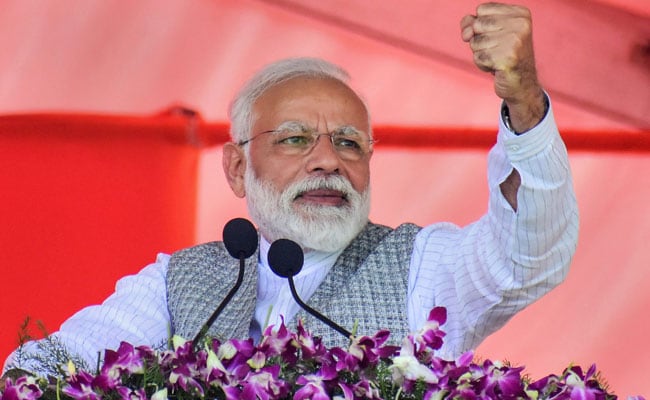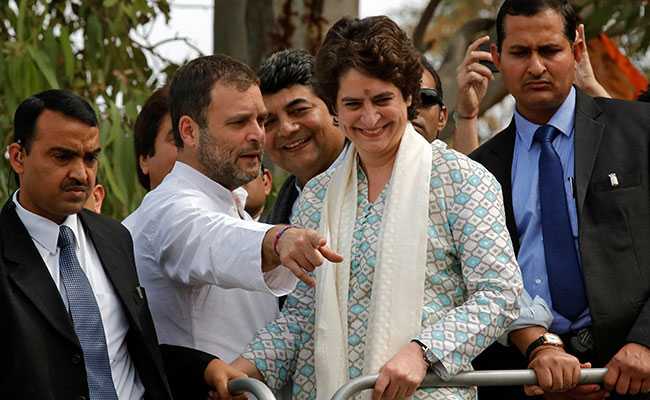There is no election quite like an Indian general election. 900 million voters across an electoral landscape more varied and complex than any other, thus making them extremely difficult to predict. This time around, we also have the epidemic of fake news and a ruling party in possession of a propaganda machine capable of reality distortion without parallel in our history. So the customary rules of how to gauge an election campaign have been upended. Have artifice and nationalistic slogans trumped real bread and better issues in the minds of the average voter? Or will the old rules of anti-incumbency re-assert themselves during the course of a long election schedule? Is this going to be another election dominated by the aura of Narendra Modi's personality or will it be more a state-by-state result determined by the localised strengths of regional parties?
To tell you the truth, I don't have the answer to any of these questions, as the electoral battle is yet to really be fought and we will only know when votes are counted on May 23. However, fear not, there are some lesser predictions we can make with a reasonable degree of certainty based on a healthy dose of common sense and by completely ignoring almost all prognostications made by 'experts' in TV studios.

PM Modi will contest from Varanasi in Uttar Pradesh, the parliamentary seat he retained after winning two seats in the 2014 election
First, there is absolutely no doubt that the BJP will be the largest party; whether that be with 180 seats or 250 seats, only time will tell. Congress will be thrilled to cross 100 seats and overjoyed if they reach 130 seats. Therefore, unless the opposition gets it act together and firms up its pre-election alliance into one bloc, it is highly likely the President will invite Shri Modi as the leader of the NDA to form a government even if the BJP-led alliance's numbers are far lower than the 336 seats it got in 2014.
Second, Balakot is not going to have anywhere near the effect Kargil War had on the general election 20 years ago. And frankly, in the final calculation, the 1999 election was won by BJP because it constructed a formidable electoral alliance while the opposition was riven with divisions. And I don't remember Shri Vajpayee mentioning the Kargil victory in any substantial manner during the campaign, he probably knew he didn't have to. Also, another difference this time is that a politically adroit Imran Khan is refusing to play the villain of the piece as General Musharraf so enthusiastically played back then.

The Lok Sabha elections will be held in seven phases beginning April 11; votes will be counted on May 23
Third, the Prime Minister and his advisers may believe he swept into power because of gimmicks like "chai pe charcha" and are now trying to replicate it by using the "chowkidar" meme in order to keep nationalist sentiment flowing, but I think they are falling into a trap of their own making. It was the complete collapse of governance under UPA-2 that provided the tailwinds for BJP's remarkable majority. People were fed up with the Congress and Modi was the perfect vessel for their rebound vote. I think it very brave of the BJP to replicate their 2014 campaign, which was that of an insurgent opposition party, in 2019, after they have spent five years in complete and total power. The assumption that voters will not ask the Prime Minister for his report card is very brave indeed. But we are assured by the media that BJP leaders are all electoral Chanakyas, so I'm sure they know something that we mere mortals cannot fathom.
Fourth, the one-of-its-kind election schedule revealed belatedly by the high priests of the Election Commission makes for rather interesting reading, in that all the large states have been salami-sliced into multiple phases of 8 to 12 seats each, making it possible for a party with only one real mega-star campaigner to visit each region of every state without any conflict in his schedule. How very fortunate for Modi-ji. Nevertheless, it underlines his main problem in the election campaign to come, in that he will be shadowed by a regional leader, or leaders, in some cases, who are either Chief Ministers or former Chief Ministers in each and every major state he visits. They will be speaking in the local language and will be there in the state all the way through, confronting him before, during and after his flying visits. Unlike 2014, this time he can only harangue the Congress in a handful of states, and I'm not even counting Punjab where the Badals and BJP should consider sitting this one out.

Congress general secretary Priyanka Gandhi Vadra with party chief Rahul Gandhi
Fifth and lastly, considering the scale of the rural distress and the Modi government's inability to comprehend the problem till the interim Budget last month, you can be assured that a BJP MP from a rural constituency has low odds on being returned to the next Lok Sabha. Urban seats will be a much better bet for the BJP, as they historically have been. I doubt the heightened Chowkidar propaganda is going to work on irate farmers in Maharashtra or western Uttar Pradesh or Madhya Pradesh. You can sense this nervousness as BJP's bigwigs decided that all of their ten sitting MPs from Chhattisgarh were being dropped in one go. Decisive action, but bound to cause rebellion as well.
So we head into this important election with a ruling party that has nothing much to show for its five-year tenure except hollow slogans and a congenital urge to crush every opposing voice in its path by any means possible. Luckily for the BJP, the fractious opposition looks far from being a government-in-waiting and there is no unifying figure like a Mahathir Mohamad in sight. And no opposition leader has really been successful in finding a narrative to counter the Prime Minister's increasingly nationalistic rhetoric so far. Complaining about Modi endlessly is not going to get the job done. But days ago, I did hear the beginnings of something that could work in a speech from Priyanka Gandhi somewhere along the Ganga on her political pilgrimage to Varanasi. You can tell when a politician has found their voice, it's hard to explain, a great stump speech is like a great song, you comprehend its power immediately and intensely like a punch to the gut. Ms Gandhi had just the right mixture of outrage, authority, fluency, sarcasm, and fire needed to make her listeners forget all about the flag-waving purveyors of hate and division. That's exactly what it takes to win an election.
(Krishan Partap Singh is a novelist and political commentator.)
Disclaimer: The opinions expressed within this article are the personal opinions of the author. The facts and opinions appearing in the article do not reflect the views of NDTV and NDTV does not assume any responsibility or liability for the same.


